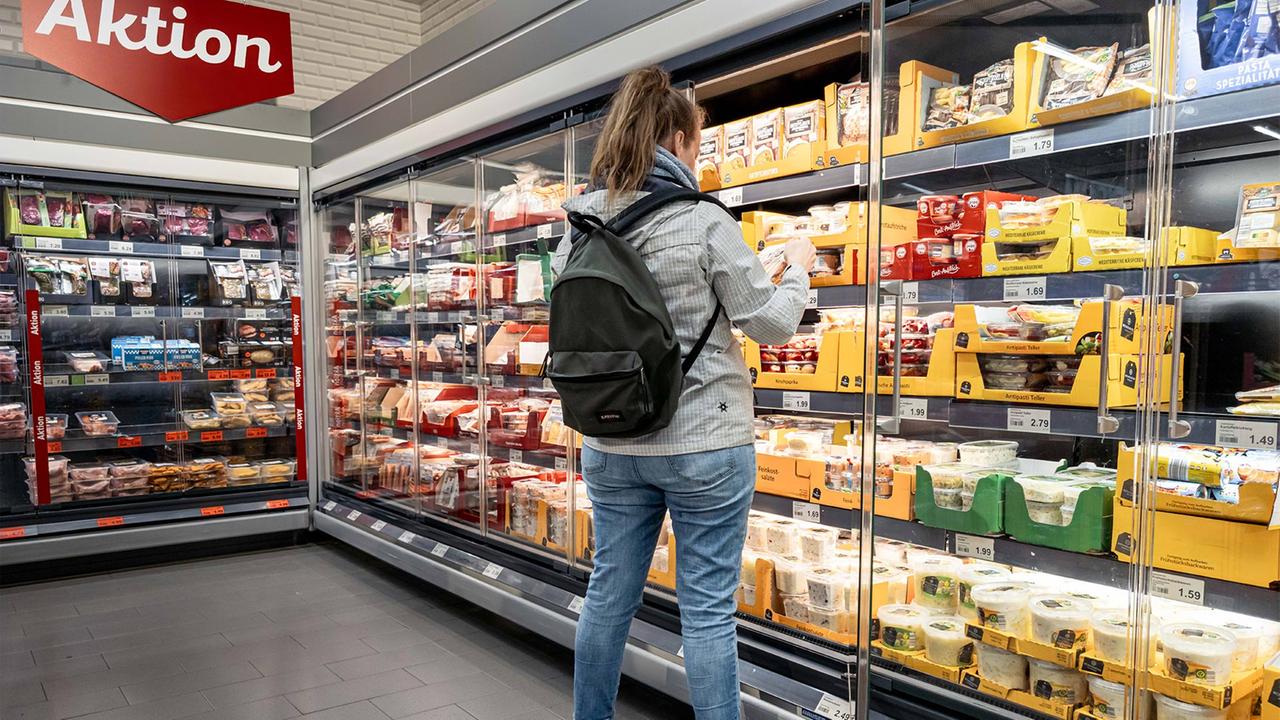Inflation continues to decrease in Germany in April. In April, goods and services only increased by 2.1 percent compared to the previous year. Energy in particular is getting cheaper.
Falling energy prices have pressed the inflation rate in Germany to the lowest level in half a year. The prices for goods and services only rose by 2.1 percent in April compared to the same month of the previous year, the Federal Statistical Office announced in its first estimate. This is the lowest value since October 2024.
Consequences of the falling oil price
In March, consumer prices rose by 2.2 percent. From March to April, prices attracted 0.4 percent. Energy was significantly cheaper: it cost 5.4 percent less than a year earlier this month (March: -2.8 percent). One reason for this is falling world market prices for crude oil. These have their cause in the trade war that started by US President Donald Trump, according to the economists, which is due to the global economy and thus dampen the demand for oil
Price drivers, on the other hand, remained the food. These increased by 2.8 percent (March: +3.0 percent). For strawberries, raspberries, gooseberries or similar fruit, 27.2 percent more was requested than a year earlier. Vegetables cost 5.3 percent more. Here, for example, tomatoes (+31.6 percent) and peppers (+26.3 percent) were very strong.
Services cost 3.9 percent more (March: +3.5 percent) than in the same month of the previous year. Consumers recently had to pay significantly more for insurance companies. The inflation rate without food and energy, often also referred to as core inflation, rose to 2.9 (March: 2.6) percent.
Interest reduction possible, but outlook unsafe
For the financial markets, the estate inflation is good news, because the declining inflation dynamics increases the scope of the European Central Bank (ECB) for further interest rate cuts. The ECB strives for a value of two percent in the monetary union in the medium term. Since she gets closer to her goal, she recently reduced her key interest rate seven times in a row. The next interest session is planned for June June 5th.
Further interest reductions are likely to encounter positive echo on the stock market, as companies can supply themselves with cheaper loans. In addition, shares are becoming more attractive due to the falling bond interest. Consumers can also borrow cheaper money, which could drive consumption. For savers, however, this means that interest rates should decrease even further at daily or fixed deposits. Already now you can no longer compensate for the inflation with many offers.
However, it is not certain whether the interest will continue to sink. “The persistent escalation of the tensions in retailers complicates the inflation outlook,” ECB President Christine Lagarde recently said. Customs could trigger fluctuations in the exchange rates, influence import prices and interrupt supply chains. And the effects on inflation are uncertain.




